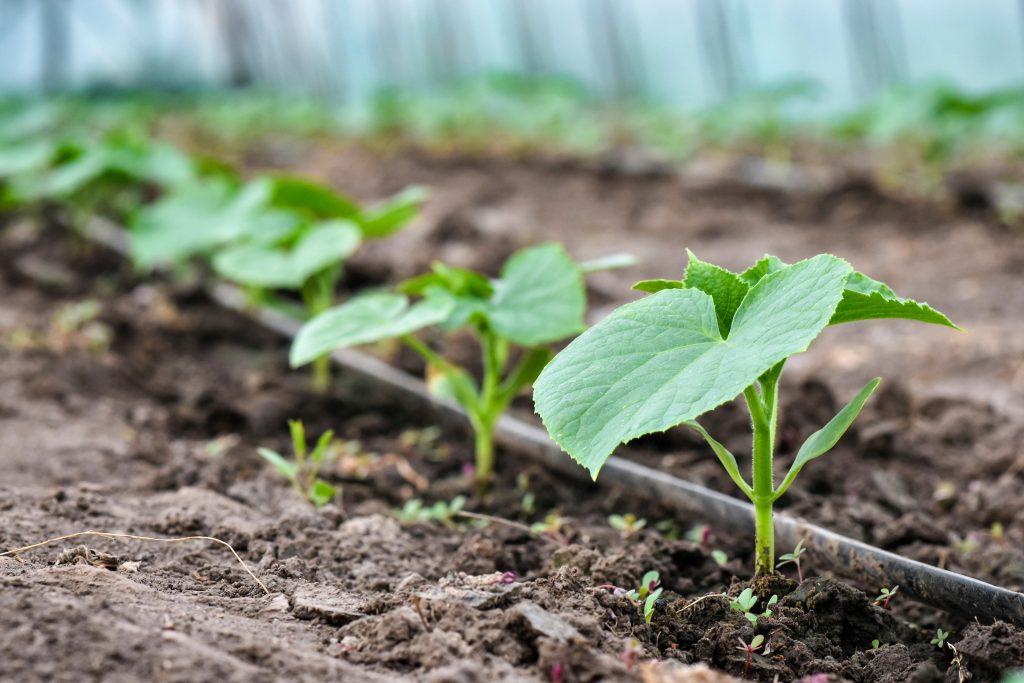Gauteng being a summer rainfall area, veggie beds will need to be watered in winter. Water is a scarce commodity, so approach this watering with care.
Slow, deep watering encourages deep root growth which enables plants to reach moisture and nutrients more easily than plants that develop shallow root systems because they have been shallow-watered.

The most effective form of watering is drip or trickle irrigation, which uses 60% less water than conventional sprinkler systems. It involves dripping water onto the soil at very low rates (2-20 litres/hour) from a system of small diameter plastic pipes fitted with outlets called emitters or drippers. You can buy the different components and set up your own system. Generally staff in irrigation supply shops are very helpful in advising the customer in terms of width of pipes, number of drippers and kinds of connectors you’ll need for your specific beds.
You can also install an automatic irrigation system with moisture sensor ~ if you can afford it.
Otherwise, it is a good idea to invest in a water meter, which is a relatively inexpensive probe that you stick into the soil to test whether you need to water.
You must avoid waterlogging, which means that there is so much water in the soil that the roots can no longer breathe. The plants need air, particularly oxygen, to a greater or lesser depth in the soil. Waterlogging of the soil stops air getting in.

Keep your beds weed free, so that your plants are not competing for water.
Hopefully you dug in large quantities of compost or manure when you planted. This not only improves the quality of the soil, but it encourages earthworm activity, aeration and water penetration.
Mulch your beds. This is a layer of material applied to the surface of soil. Mulches can be made from several sources including grass clippings, straw, wood shavings, bark or sawdust. Newspaper is a good mulch because of its water-holding qualities, although it doesn’t look as natural as organic materials. Mulch conserves soil moisture, improves fertility and health of the soil and reduces weed growth.

Watering should take place after sunrise, so that you do not damage the landscape by adding water which will freeze when it comes in contact with vegetation. Irrigating after sunrise will in fact help to wash frost off your lawn and unprotected garden areas. You can also water in the late morning, but avoid watering in the afternoon during winter, as this might cause your plants to freeze in Gauteng’s cold nights.
